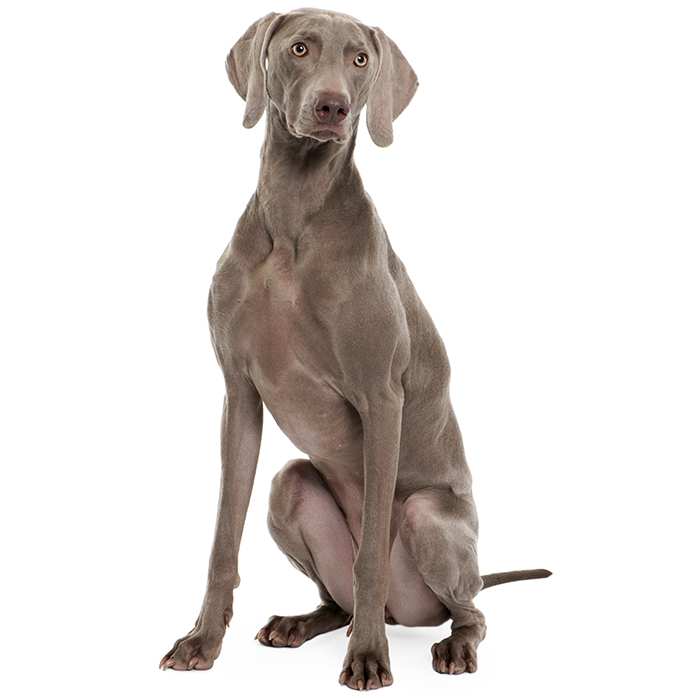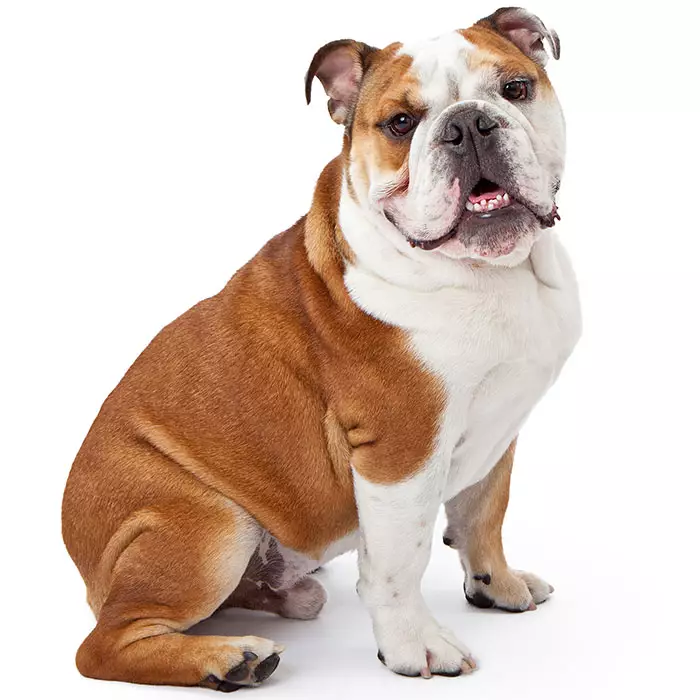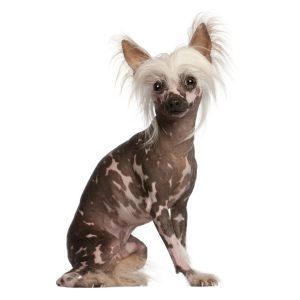Golden Retriever


| Recommended for | Active families |
| Breed Classification | Sporting group |
| Other names | Goldens, GR's |
| Lifespan | 11-12 years |
| Size | Large |
| Temperament | Friendly, gentle, calm, faithful |
| Intelligence | Very high |
| Tendency to bark | Low |
| Maintenance Level | Medium |
| Health Risk | This breed has an around average probability of having health issues in its lifetime, hence it is one of the more affordable breeds to insure. |
Insuring a Golden Retriever?
Get our award-winning Nose-to-Tail Cover with up to $30k annual benefit limit, up to 90% of eligible vet bills back, and no sub-limits.
Get a quick quote
Is this breed right for you?
Try our breed selector quiz to find out your best matching breed!
Insuring a Golden Retriever?
Get our award-winning Nose-to-Tail Cover with up to $30k annual benefit limit, up to 90% of eligible vet bills back, and no sub-limits.
Get a quick quote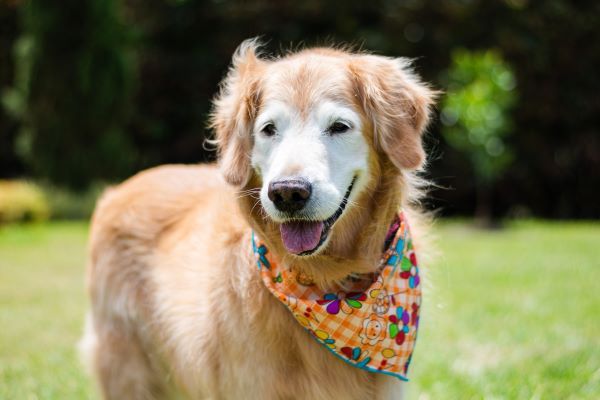
Breed history of Golden Retrievers
The Golden Retriever was developed in Scotland in the mid-1800s out of a need for an adequate retriever – on both land and in water – for wealthy hunters. The breed we see today evolved from crossing the best water spaniels with land retrievers, resulting in an active, powerful dog with a soft mouth-grip for retrieving game. The Scottish businessman and politician Dudley Marjoribanks is credited with creating the breed.
The Kennel Club of England first registered the breed as “Flat Coats (Golden)” in 1903 and it was first seen at a British dog show in 1908. In 1911 it was officially recognised as “Retriever (Golden and Yellow)”. The American Kennel Club recognised the breed 14 years later in 1925, but the its popularity really took off in the 1970s, the era of President Gerald Ford and his beautiful Golden named Liberty.
Today, the Golden Retriever is one of the world’s favourite dog breeds. Because of their intelligence and work ethic, they make great working dogs and can be utilised in many different roles including as seeing-eye dogs, hearing dogs, hunting & detection dogs, and search and rescue dogs.
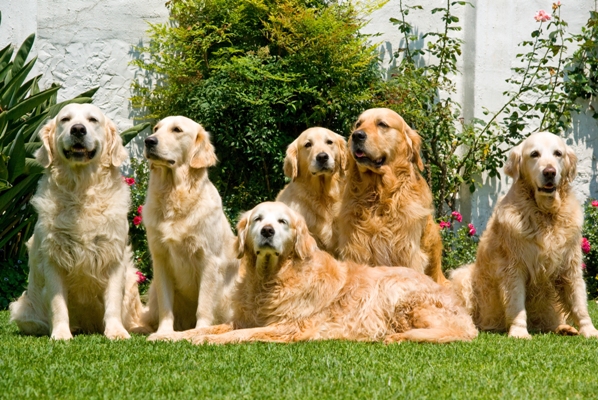
Physical description of Golden Retrievers
Golden Retrievers are sturdy, muscular dogs with a distinctive lustrous, thick, golden coat for which the breed is named.
There are three main types of Golden Retrievers, which have arisen due to the breed’s widespread popularity. The British type has a wider, shorter muzzle, shorter legs and tail, a deeper chest and a blockier forehead.
American Golden Retrievers are taller than their British cousins, lankier, and less stocky.
Canadian types have thinner, darker coats and are generally taller and leaner than other types.
Puppies of all types usually have a very light coat which darkens over time.
| Weight range | Male 29 to 34 kg, female 27 to 32 kg |
| Height range | Male 58 to 61 cm, female 55 to 57 cm |
| Colours | Golden, ranging from light to dark |
| Coat length | Medium |
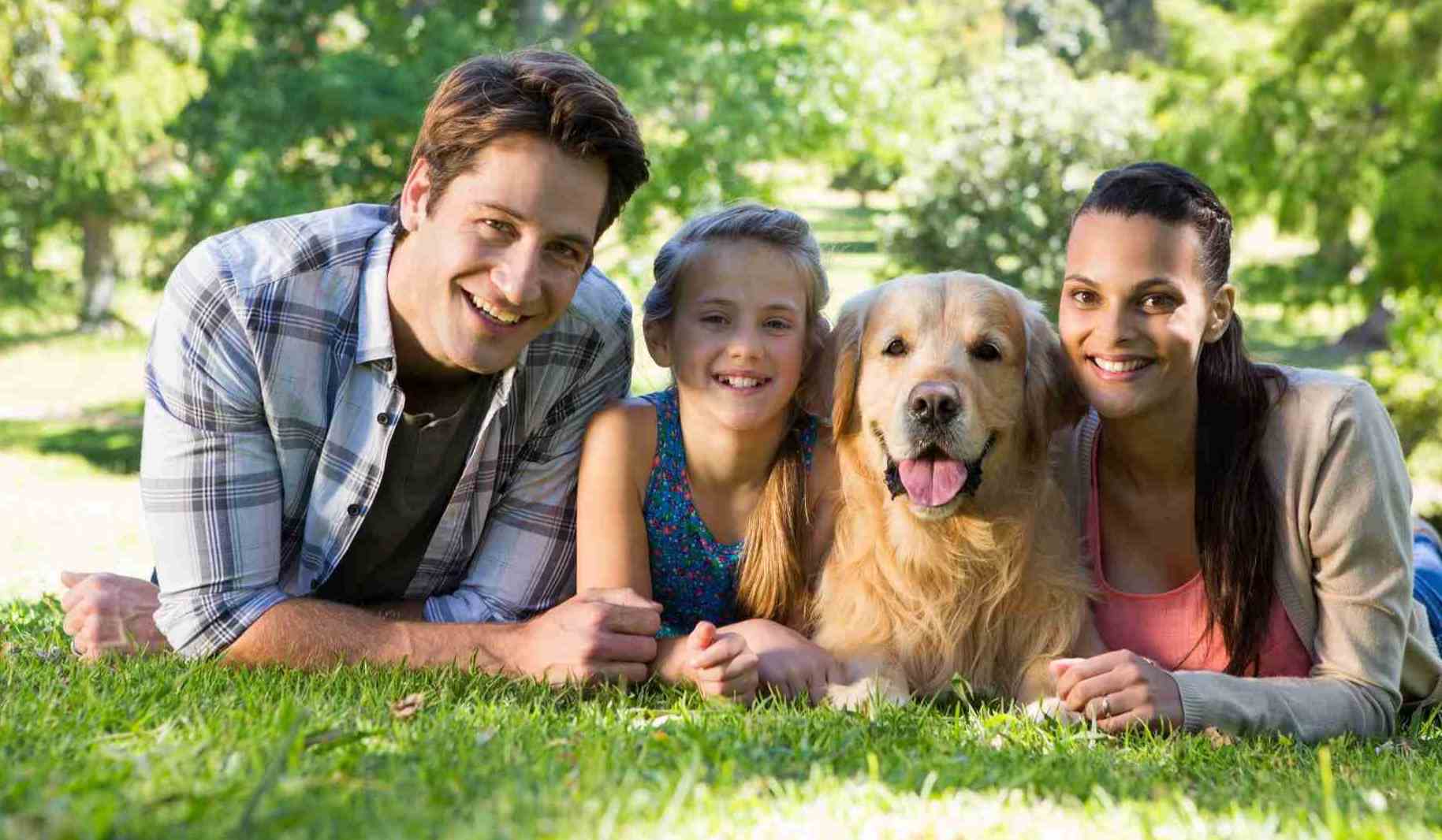
Golden Retriever personality and temperament
Golden Retrievers are famous for their friendly and gentle temperament, which has consistently placed them on most popular dog breed lists around the world, Australia included. Loveable and charming dogs who love to please their owners, they are at their happiest when surrounded by their family, and are often described as the ideal family pet.
Goldens are intelligent, outgoing, trustworthy, and eager-to-please their humans. They take a joyous and playful approach to life and maintain this puppyish behaviour into adulthood. While they love to play, they are incredibly smart and are frequently listed in the top 5 smartest dogs.
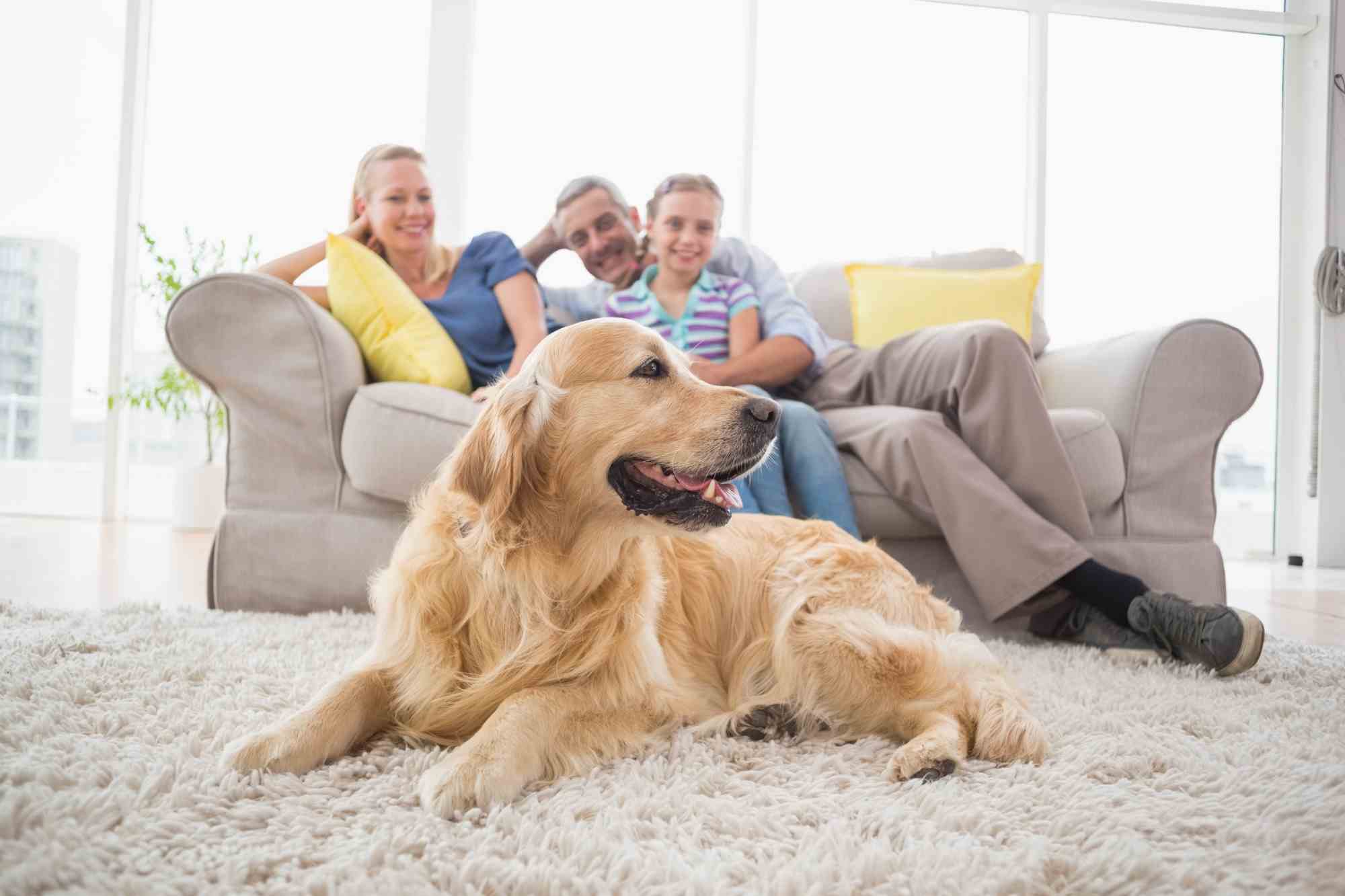
Golden Retrievers with kids and other pets
Golden Retrievers simply love everybody and are devoted to their families.
Their gentle nature makes them great with children.
They are loyal, docile, and are extremely rarely aggressive.
They are usually very good with other dogs.
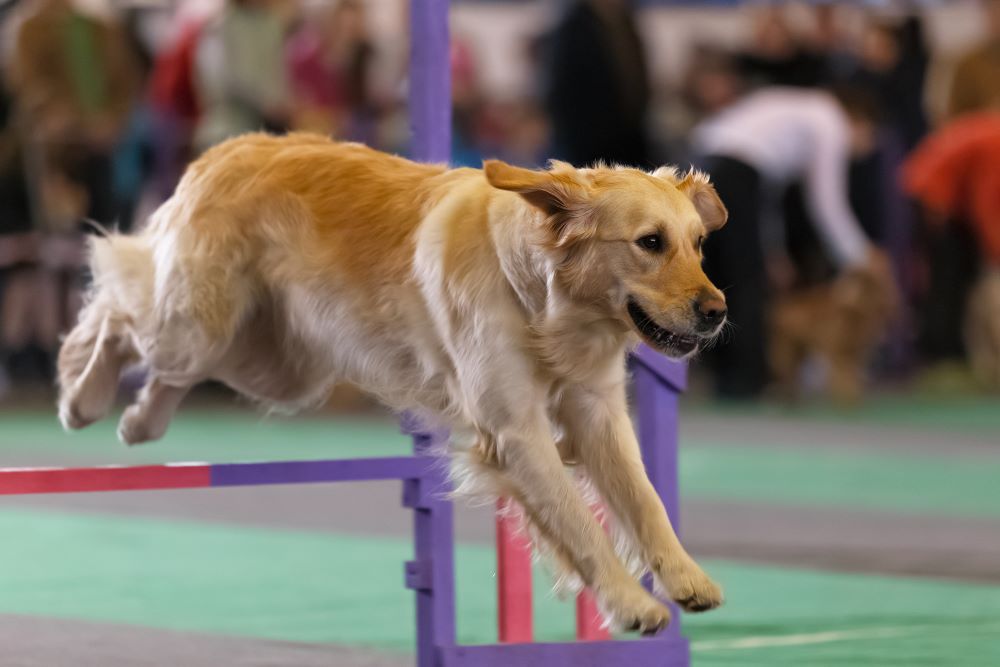
Golden Retriever training and exercise
Golden Retrievers are the perfect dogs for active owners, including distance runners and cyclists. These energetic, powerful retrievers need plenty of daily exercise; if not, they are likely to engage in undesirable behaviour.
They enjoy outdoor play; developed to retrieve waterfowl for hours on end, swimming and fetching are natural pastimes. They also enjoy participating in canine sports such as agility, obedience, and tracking.
While they love to play, they are incredibly smart and highly trainable. Favourites at dog shows and sporting competitions, Golden Retrievers are frequently listed in the top 5 smartest dogs. They’re also very easy to train, as they love to please.
Like all dogs, the Golden Retriever should be socialised and exposed to different environments and situations from a young age to ensure it becomes a well-rounded dog.
| Energy level | High |
| Exercise requirements | High |
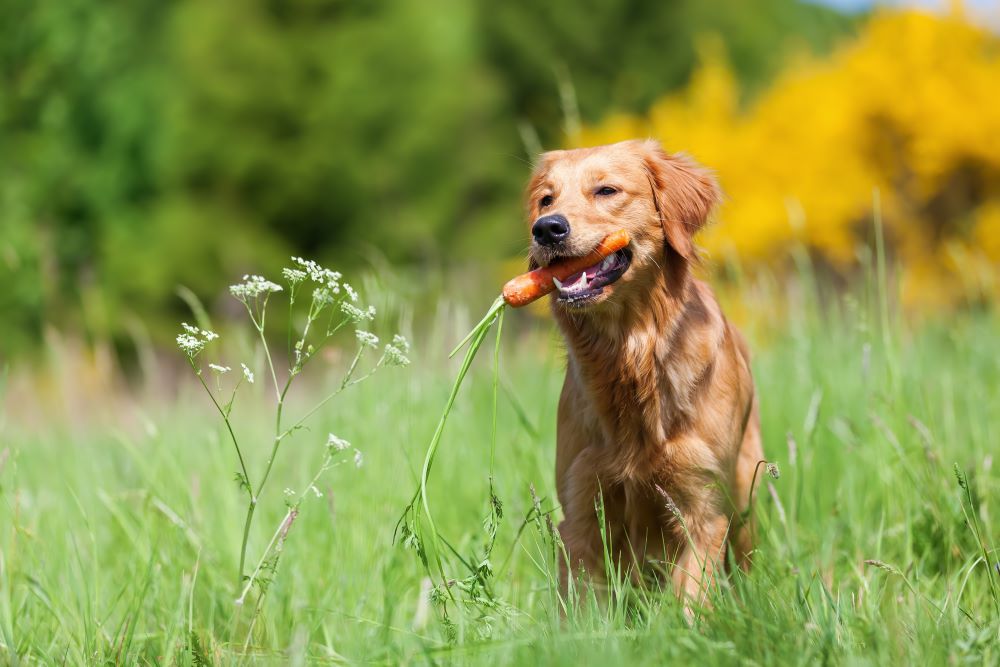
Golden Retriever feeding and nutrition
Choose a high-quality dog food appropriate for the dog’s age (puppy, adult, or senior) that will provide all the nutrients the breed needs.
Some Goldens can become overweight, so regularly monitor your dog’s calorie consumption and weight. If you choose to give your dog treats, do so in moderation. Give table scraps sparingly, if at all, especially avoiding cooked bones and foods with high fat content. Check with your vet if you have any concerns about your dog’s weight or diet.
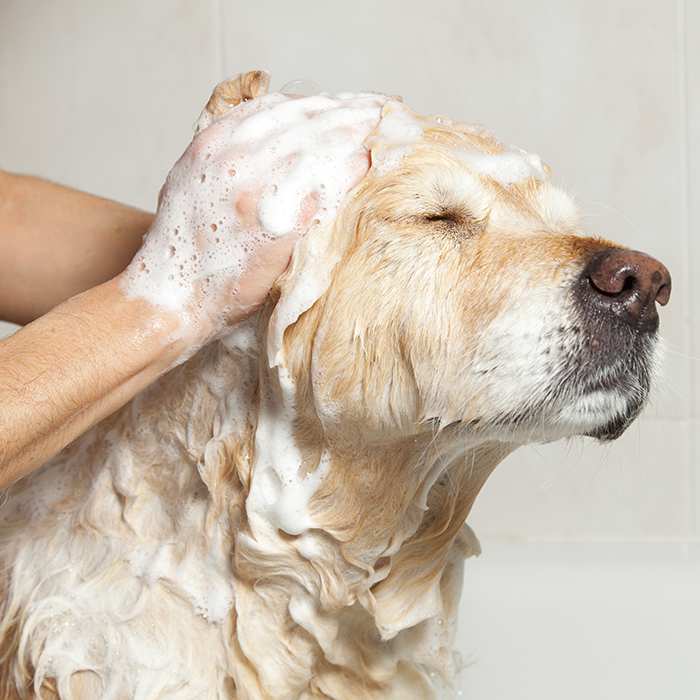
Golden Retriever care and grooming
The breed has a double coat comprised of a thicker, water-repellent top coat and a soft undercoat to keep the dog cool in warmer months and warm in cooler months.
The only downside of the Golden Retriever is shedding – you’ll find white balls of fluff everywhere!
Because they tend to shed throughout the year but particularly around the change of the season, it is recommended that owners spend at least 10 minutes per week brushing their Golden Retriever.
Besides regular brushing, they don’t need much grooming, other than a bath once per month.
Health issues for Golden Retrievers
Golden Retrievers are generally healthy dogs, and responsible breeders will screen their breeding stock for inheritable health conditions. However, the following conditions can occur in the breed:
- Cancers including hemangiosarcoma, lymphosarcoma, mast cell tumour and osteosarcoma were responsible for the deaths of 61.4% of Golden Retrievers in America, according to a 1998 study by the Golden Retriever Club of America, while a UK study from 2004 places this number at 38.8%.
- Hip dysplasia is a hereditary condition in which the thighbone and hip socket do not fit together properly, causing pain and lameness in one or both hip joints. The condition should be assessed and managed by a vet from as early as possible because it can lead to painful arthritis later in the dog’s life.
- Elbow dysplasia, common among large dog breeds, is a heritable condition in which different growth rates of the bones in the elbow can cause joint laxity, leading to pain and lameness. Surgery may be required to fix the issue or medication may be given to control the pain.
- Subvalvular aortic stenosis is a heart problem resulting from a narrow connection between the aorta and the left ventricle, which can cause fainting and even death. This condition is detectable and treatable.
- Cataracts in canines, like those in humans, are characterised by cloudy spots on the eye which grow over time and can develop at any age. Often they do not severely impact the dog’s vision, but in some cases have been known to cause blindness. Another eye condition called Progressive retinal atrophy can also cause vision loss in Golden Retrievers.

- Osteochondrosis dissecans is an orthopaedic condition resulting from improper cartilage growth in the joints, usually in the elbows, which causes severe pain. Too much protein fed to the dog when it is a puppy can lead to the condition.
- Allergies can be an issue with Golden Retrievers, especially allergies to fleas and occasionally food. Symptoms include the dog licking its paws or rubbing its face very often.
- Gastric dilation-volvulus (bloat) is a life-threatening condition affecting larger dogs. It is caused by feeding the dog one large meal a day, eating too quickly, or drinking lots of water or doing physical activity after eating. Unless treated immediately, the dog may die. Signs include a distended abdomen, excessive drooling and retching.
- Other Issues, including Von Willebrand’s disease (a blood disease), epilepsy and hypothyroidism are also conditions which may affect Golden Retrievers.
Not all conditions are covered by Pet Insurance. For details of Bow Wow Meow Pet Insurance cover, refer to the Product Disclosure Statement.
Thinking about insuring a Golden Retriever
Thinking about insuring a Golden Retriever
Learn moreThinking about insuring a Golden Retriever
Learn moreMORE INFORMATION
National Golden Retriever Council Australia: http://ausngrc.org/
Golden Retriever Club of NSW Inc: http://www.grcnsw.org.au/
Golden Retriever Club of Vic: http://www.grcv.org.au/
Golden Retriever Club of QLD: http://www.grcq.org.au/
Golden Retriever Rescue Inc: http://www.grr.org.au/

